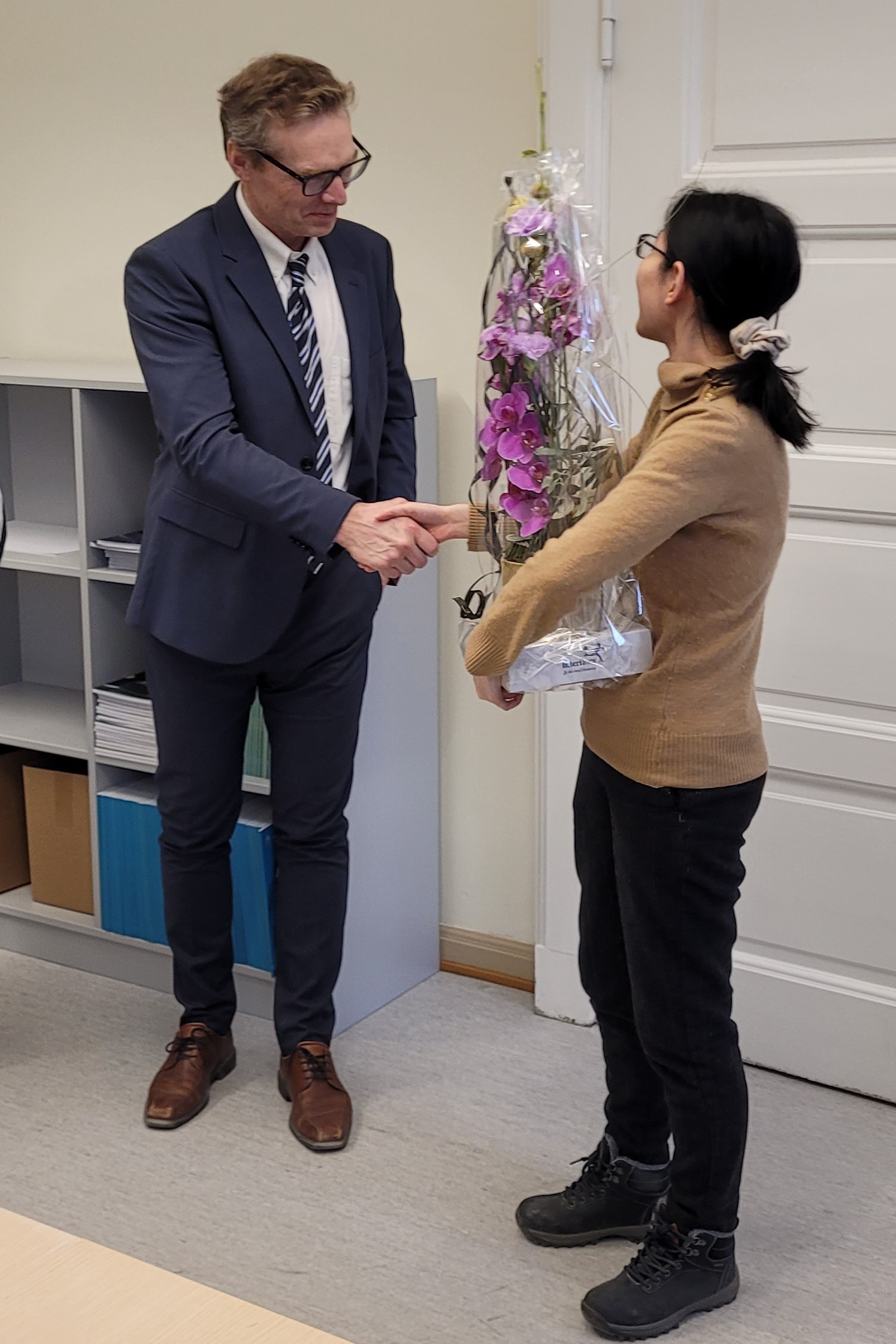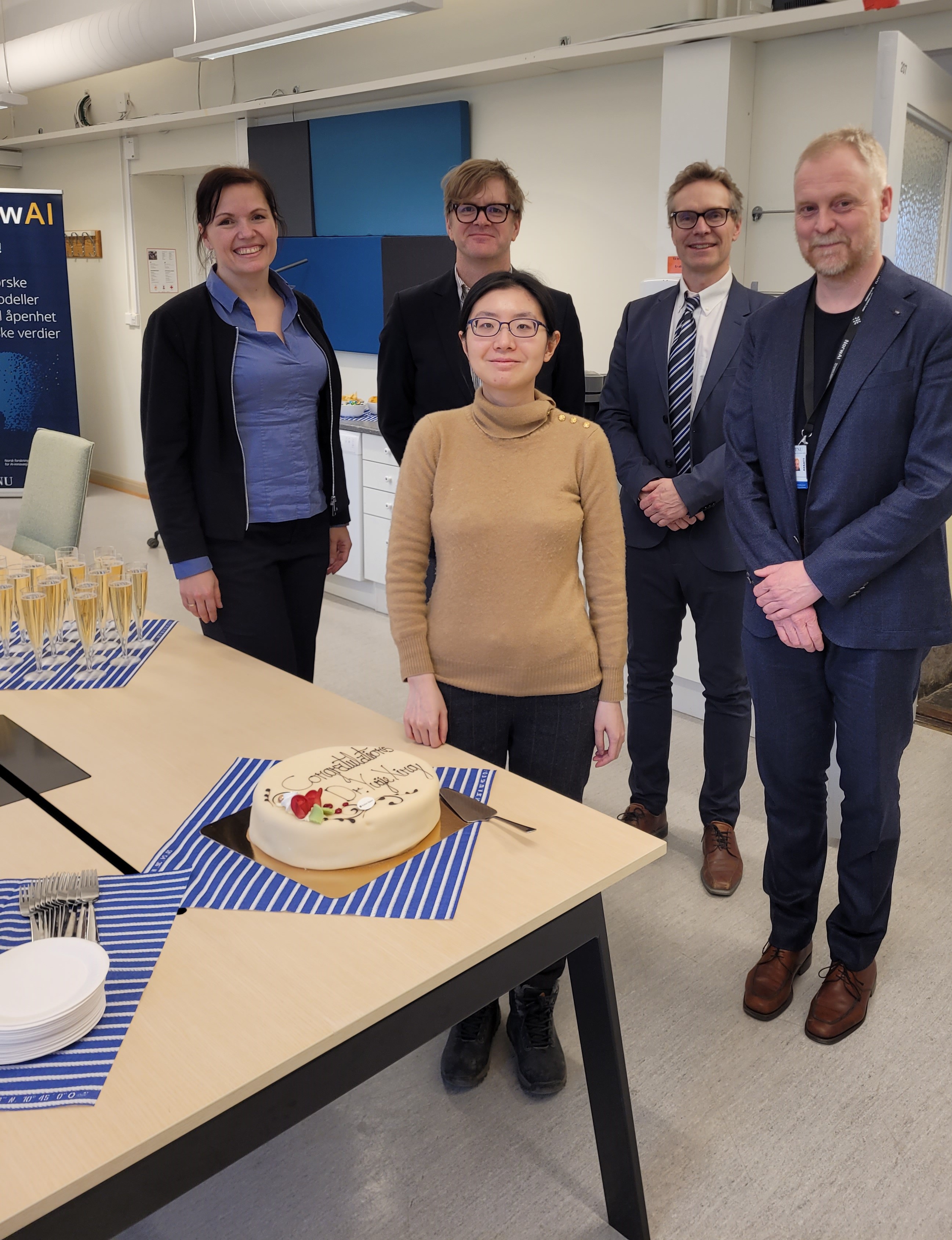PhD Yujie Xing defended her thesis
Yujie Xing defends PhD thesis on generation-based conversational agents
Yujie Xing, a PhD candidate at the Department of Computer Science, NTNU of the University of XYZ, successfully defended her thesis on "Multi-Turn Generation-Based Conversational Agents in Open Domains" on March 18, 2024. The thesis proposes and evaluates novel methods for improving the quality and diversity of chatbot responses in open domains.

The thesis was supervised by Professor Jon Atle Gulla and co-supervised by Professor Kjetil Nørvåg, both from NorwAI, NTNU as well as Doctors Aria Rahmati and Peng Liu. The thesis has been part of the DNB collaboration project and has received funding from NorwAI.
The Assessment Committee was 1. opponent Professor Staffan Larsson, University of Gothenburg, Sweden and 2. Opponent Professor Lucie Flek, University of Bonn, Germany. Administrator and internal member was Associate Professor Terje Brasethvik, NTNU.
The thesis addresses the challenges of building conversational agents that can generate natural and engaging responses in open domains, where the topics and intents of the users are not predefined or restricted. The thesis contributes to the field by proposing and evaluating several methods for improving various aspects of generation-based conversational agents:
- Novel insights into methods for training on multiple corpora from different domains (interleaved learning, labeled learning, and multi-task labeled learning), metrics for evaluating those, and methods for identifying domains when answering user queries.
- Methods for improving the training and evaluating context awareness in conversational agents based on distraction attention score, which measures how well the agent focuses on the relevant parts of the dialogue history.
- Combining document extraction and generation for improving the quality of system answers, evaluating also novel alternatives such as prompt-based tuning and instruction-based tuning, as well as their combinations. These methods leverage external knowledge sources and natural language instructions to guide the generation process.
The results show that the methods can improve the quality and diversity of the chatbot responses, as well as their ability to handle different domains and contexts. The application of this work is in the role of chatbots or personalized assistants or avatars that can interact with users in natural language and provide useful information or services. Such conversational agents have the potential to enhance the user experience and satisfaction in various domains and scenarios, such as e-commerce, education, entertainment, finance, games, and social media.
Yujie Xing also gave a trial lecture the same day on “The role of academic research on conversational AI in the age of ChatGPT”.
 |
 |
